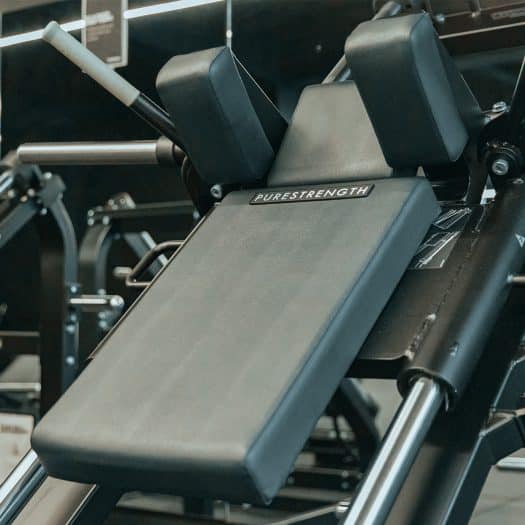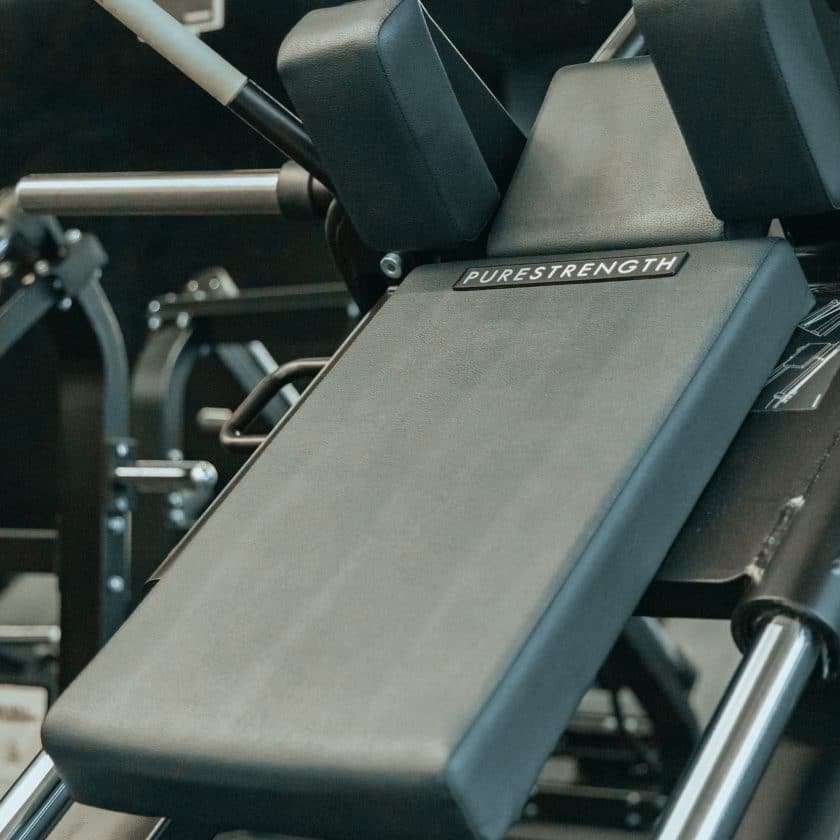A Beginners Guide to Using Protein Powders For Fitness
If you're new to the world of fitness and nutrition, you may have heard about protein powders. Protein powders are a popular supplement for people looking to build muscle, lose weight, or support their overall health and wellness. Fitness veterans swear by it (duh), but if you’re just beginning with your fitness journey, you may wonder about the ‘how’s’ and ‘what’s’ when it comes to starting with protein powders. We know the feeling. But fear not, for this beginner's guide is here to shed light on the fundamentals of protein powders, their myriad benefits, and most importantly, how to select the perfect one to suit your unique needs. So, let's strap on our gym shoes, buckle up for a thrilling ride, and discover how protein powders can help unlock your fitness potential!
Little side note: whether or not protein powders are right for you will depend on your individual goals and circumstances. If you’re considering adding protein powder to your routine, it’s always a good idea to talk to a healthcare professional or registered dietitian first. This blog is merely meant to introduce you to the basics of proteins, and not meant to be dietary advice.
What are protein powders?
Protein powders are dietary supplements that are designed to increase your protein intake. They come in a variety of forms, like whey, casein, soy, pea, hemp, and rice protein. You can mix ‘em up with water, milk, or your favorite beverages to whip up a shake or smoothie.
Think of protein powders as your trusty sidekick for a convenient way to increase your protein intake, especially if you have a busy lifestyle or find it difficult to get enough protein from whole foods alone. They’re the ultimate convenience weapon in your fitness arsenal, so starting with using protein powders can be really helpful.
Why use protein powders?
Proteins are the superheroes of the fitness world, playing a crucial role in achieving your health and fitness goals. Whether you’re aiming to build lean muscle, recover faster from intense workouts, or simply optimize your overall well-being, protein is your trusted ally.
These mighty macronutrients are the building blocks of our muscles, helping to repair and rebuild damaged tissues. By including an adequate amount of protein in your diet, you provide your body with the essential amino acids it needs to support muscle growth and maintenance.
Additionally, proteins have a higher thermic effect compared to other macronutrients, meaning your body burns more calories while digesting them. This can aid in weight management and boost your metabolism. Furthermore, proteins promote satiety and help regulate blood sugar levels, reducing cravings and providing sustained energy throughout the day. So, whether you’re lifting weights, doing cardio, or pursuing any fitness endeavor, protein is the secret weapon that will fuel your success and help you unleash your full potential.
The benefits of protein powders
Let’s zoom in a bit deeper on some of the many potential benefits of protein powders:
Muscle growth and repair:
Protein is essential for muscle growth and repair. Consuming protein powders after a workout can help stimulate muscle protein synthesis and promote muscle recovery.
Weight management:
Protein can help you feel full and satisfied, which may help with weight management. Protein powders can be a low-calorie way to increase your protein intake and support weight loss.
Convenience:
Protein powders are a convenient way to increase your protein intake, especially if you’re on-the-go or don’t have time to prepare meals.
Improved overall health:
Protein is essential for overall health and wellness. It plays a role in many biological processes, including immune function, hormone production, and tissue repair.
The pros and cons
Using protein powders comes with its fair share of pros and cons. It’s all about finding what works best for you and your fitness goals. So, here’s the lowdown on the key pros and cons you should keep in mind:
Pros
Convenience:
Let’s be real, sometimes we’re just too busy to cook up a big ol’ chicken breast or grill some fish. Protein powders are a convenient way to get your daily dose of protein without having to spend a lot of time prepping and cooking.
Muscle Building:
Building and repairing those muscles takes some serious protein power. Protein is simply key fort his. Protein powders can be your secret weapon to help you amp up your muscle game, give you that extra boost and smash your fitness goals.
Weight Loss:
Looking to lose some pounds? Protein powders can help on that weight loss journey. This is because they can keep you feeling fuller for longer, making it easier to stick to a healthy diet and kick those cravings to the curb.
Digestion:
Some people have trouble digesting certain high-protein foods, like beans or dairy. Protein powders can be a great alternative for those who need an easier-to-digest option.
Cons
Cost:
Let’s be real, protein powders can be pretty pricey. If you’re on a tight budget, you think twice before adding them to your shopping list.
Quality concerns:
With so many different brands and types of protein powders out there, it can be tough to know which ones are legit and which ones are just filled with junk. You have stay sharp and do your research to avoid getting stuck with low quality powders.
Calories and sugar:
Some protein powders are loaded with calories and sugar, which can be a real problem if you’re trying to watch your weight or maintain a healthy diet. Keep an eye on those labels, friends.
Not a replacement for real food:
Protein powders are great, but they shouldn’t be your sole source of nutrition. Whole foods like meat, fish, eggs, and vegetables provide a range of other nutrients that you can’t get from a powder.
Types of protein powders
There are several types of protein powders available on the market, each with its own unique characteristics and benefits. Here are some of the most popular types of protein powders:
Whey protein:
Whey protein is derived from milk and is one of the most popular types of protein powders. It is fast-absorbing and high in essential amino acids, making it a popular choice for athletes and bodybuilders.
You can devide whey proteins into two groups: Whey Protein Concentrate and Whey Protein Isolate. Both are milk-derived protein supplements.
- Whey protein concentrate contains around 70-80% protein, while whey protein isolate has a higher protein content of 90-95% with less lactose and fat.
- Whey protein isolate is more easily digested and suitable for those with lactose intolerance or sensitive stomachs. It is slightly more expensive than whey protein concentrate, which is a more budget-friendly option.
Casein protein:
Casein protein is also derived from milk and is a slower-digesting protein. It can help promote muscle recovery and reduce muscle breakdown during sleep.
Soy protein:
Soy protein is a plant-based protein that is a good option for vegetarians and vegans. It contains all the essential amino acids and has been shown to have health benefits, such as reducing cholesterol levels.
Pea protein:
Pea protein is another plant-based protein that is rich in essential amino acids. It is also hypoallergenic, making it a good option for people with food allergies or sensitivities.
Rice protein:
Rice protein is another plant-based protein that is high in essential amino acids. It is also gluten-free, making it a good option for people with gluten intolerance.
Hemp protein:
Hemp protein is derived from hemp seeds and is also a good source of essential amino acids. It also contains omega-3 and omega-6 fatty acids, making it a good option for overall health and wellness.
Mixed plant-based protein blends:
Some protein powders combine multiple plant-based protein sources, such as pea, rice, and hemp, to provide a complete amino acid profile.
Overall, the type of protein powder you choose will depend on your individual needs and preferences. Consider factors like protein source, flavor, and cost when choosing a protein powder that works for you.
Choosing the right protein powder
The protein powder aisle can feel like a maze. With so many different types of protein powders on the market, it can be difficult to know which one to choose. Here are some factors to keep in mind when choosing a protein powder:
Protein source:
Whey and casein are derived from milk and are popular choices for athletes and bodybuilders. Soy protein is a good option for vegetarians and vegans. Pea, hemp, and rice protein are plant-based options that are also popular.
Protein content:
Look for a protein powder with at least 20 grams of protein per serving. Don’t settle for anything less!
Flavor and sweetness:
Protein powders come in many different of flavors and sweetness levels. Some people prefer unflavored or unsweetened protein powders, while others enjoy sweeter options like chocolate or vanilla. It’s all about finding your flavor groove. Make it a fun experiment and try out the different flavors that are out there!
Cost:
Protein powders can vary in price, so consider your budget when choosing a protein powder.
How to use protein powders
Now that you already know a lot more about protein powders, you might wonder ‘how’ you can use them. As always, we got you. The easiest and most common way to use protein powders, is by adding it to other foods or drinks. Here are some varieties of how you can do that:
Water or milk:
Mix your protein powder with water or milk for a quick and easy post-workout shake.
Smoothies:
Add protein powder to your favorite smoothie recipe for a protein boost. It’s the secret ingredient for a boost of deliciousness and gains.
Oatmeal:
Mix protein powder into your oatmeal for a high-protein breakfast.
Baked goods:
Use protein powder in baked goods like muffins or pancakes for a protein-packed snack.
Safety first
Protein powders are generally safe for most people, but don’t go overboard. Stick to the recommended dosage on the label, because too much of something is never a good idea. It’s good to know though, that too much protein can lead to unwanted health issues, like kidney damage. So, play it smart and stay within the recommended limits.
Conclusion
Protein powders can be your fitness sidekick, fueling your gains and support your goals. When choosing your powder of power, think about the protein source, content, flavor, and cost. And hey, don’t forget to get as much protein as you can from whole foods too. With these tips in your arsenal, you’re ready to conquer the protein powder kingdom!







